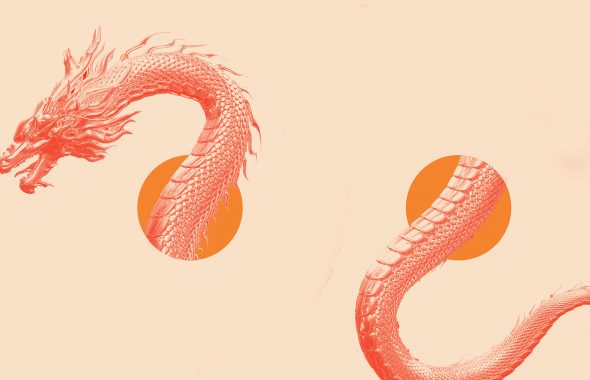Forget Thanksgiving, New Year’s, and Fourth of July—for some people, no other holiday comes close to Halloween. For those who are all about “spooky season,” they’re breaking out the pumpkin spice and brainstorming creepy costumes at the first hint of fall.
But are those who savor the haunting side of this holiday all about the terror that ghosts and skeletons bring? Or is it horror that makes the day so spectacular? And are these two words interchangeable? Let’s take a closer look.
What does terror mean?
Terror is a noun that means “intense, sharp, overmastering fear.” It can also refer to “the instance or cause of intense fear or anxiety; quality of causing terror.”
For example:
- He was struck with terror as he walked to the bar exam room, as he couldn’t stop thinking about what would happen if he didn’t pass for the third time.
- Ana was originally confident about moving, but in the middle of the night, terror set in as she began to doubt her decision.
Terror can also be used more casually to describe a troublesome person or thing—especially a child.
For example:
- The angelic 2-year-old turned into a full-on terror the moment her parents came home with her baby sister.
- That car is a complete terror because it’s constantly breaking down whenever we need it most.
Lastly, terror can be used when referring to terrorism, violence, or “threats of violence used to intimidate or coerce.” This can include any period of frightful violence or bloodshed, such as the Reign of Terror in France.
For example:
- The act of terror that some New Yorkers experienced firsthand on September 11, 2001 is one that no person should have to live through.
Terror was first recorded in English around 1325–75, and it originates from the Latin terrēre “to frighten.” Synonyms for terror include alarm, dismay, and consternation.
What does horror mean?
Horror is a noun that is defined as “an overwhelming and painful feeling caused by something frightfully shocking, terrifying, or revolting; a shuddering fear.” It can also refer to anything that causes such a feeling.
For example:
- While he was driving home, he watched in horror as the car in front of him drifted into oncoming traffic, causing an accident.
- Imagine the horror she felt after first discovering that her husband had fallen in love with her best friend.
Informally, horror can also be used to refer to something that’s considered tasteless.
For example:
- The apartment was a horror, and it was clear to everyone who came over that the roommates hadn’t cleaned since moving in.
Horror can also be used as an informal interjection. For example:
- She hasn’t been able to shop at HomeGoods for months—the horror!
As an adjective, horror can mean “inspiring or creating horror, loathing, aversion,” or “depicting terrifying events.”
First recorded in English in the early 1500s, the word horror comes directly from the Latin horror, which is based on the verb horrēre, “to bristle with fear”—quite literally, for one’s hairs to stand on end when they get goosebumps. Learn more about the connection hair and goosebumps in our Vocab Builder section on horripilation.
Synonyms for horror include dread, disgust, dismay, and apprehension.
How to use each word
Although both terror and horror imply extreme fear or the presence of danger or evil, they have a slight difference in usage.
Terror is typically used in anticipation of a danger that’s in the future. This intense dread or panic is a reaction to something that could or is going to happen.
For example:
- He was hit with terror as he awaited the doctor’s diagnosis.
- Although she loves watching shows about paranormal activity, she’s often gripped by terror in the middle of the night when she thinks she hears a ghost.
On the other hand, horror generally implies danger or shock at witnessing or experiencing something, well, horrific.
For example:
- They watched in horror as the car in front of them crashed directly into a school bus.
- The entire family screamed in horror while watching the spooky movie together on Halloween.
Horror in literature and film
Horror is a popular genre in both literature and film. This isn’t just a new trend, though, as people have loved getting spooked for a hauntingly long time. In literature, many consider the first written horror story to be The Castle of Otranto, written by Horace Walpole in 1765. As for film, most agree that the first horror film was Le Manoir du Diable (1896), a three-minute short film created by French filmmaker Georges Méliès.
Horror, in both writing and film, is often defined by its intent to cause fear, dread, repulsion, or disgust in its audience. To this end, there are some common elements that often appear in both horror stories and horror movies. These include:
- a buildup of suspense or tension
- supernatural phenomena, such as ghosts or magic
- fantastical creatures and monsters, such as vampires and zombies
- excessive and/or shocking violence
- disturbing or disgusting imagery, such as maggots, rats, or bodily fluids
- characters experiencing psychological anguish and trauma
Needless to say, horror stories and movies can get pretty creative when it comes to “entertaining” their audience by scaring the heck out of them. That being said, both literature and film have seen the emergence of different horror subgenres emerge.
Horror literature subgenres
We’ve gathered a list of some most common horror genres you are likely to see when browsing horror literature. As is often the case with horror, some of these subgenres may overlap or some people may disagree on what subgenre a particular horror story belongs to.
- Gothic horror
- paranormal horror
- Lovecraftian horror
- body horror
- dark fantasy
- science fiction horror
- survival horror
- splatterpunk
- dystopian horror
- erotic horror
Horror movie subgenres
Horror films have a bunch of subgenres of their own, too. Again, these tend to overlap or are the subject of debate among horror fans. Here is a list of just 10 of the horror movie subgenres you might encounter:
- monster movie
- slasher
- psychological horror
- gore
- paranormal
- horror comedy
- splatter movie
- body horror
- found footage
- science-fiction horror














